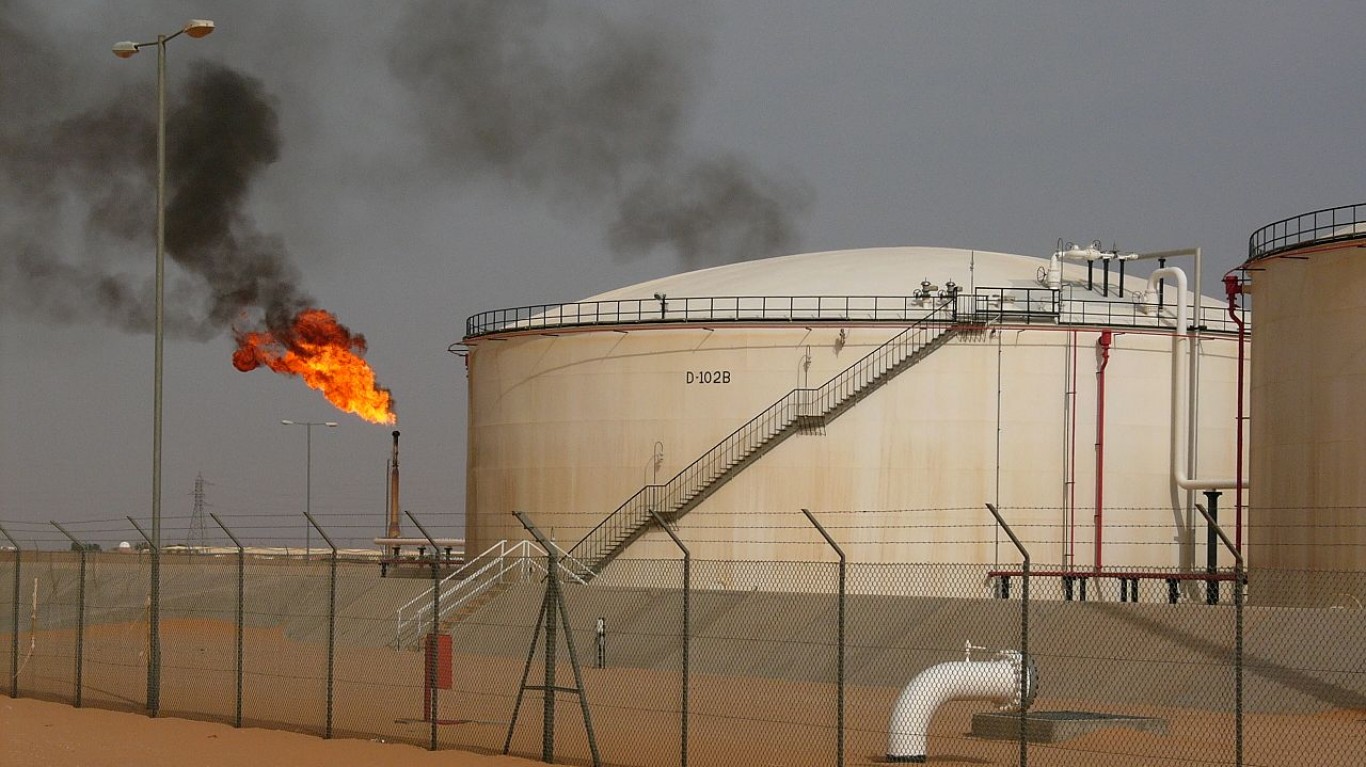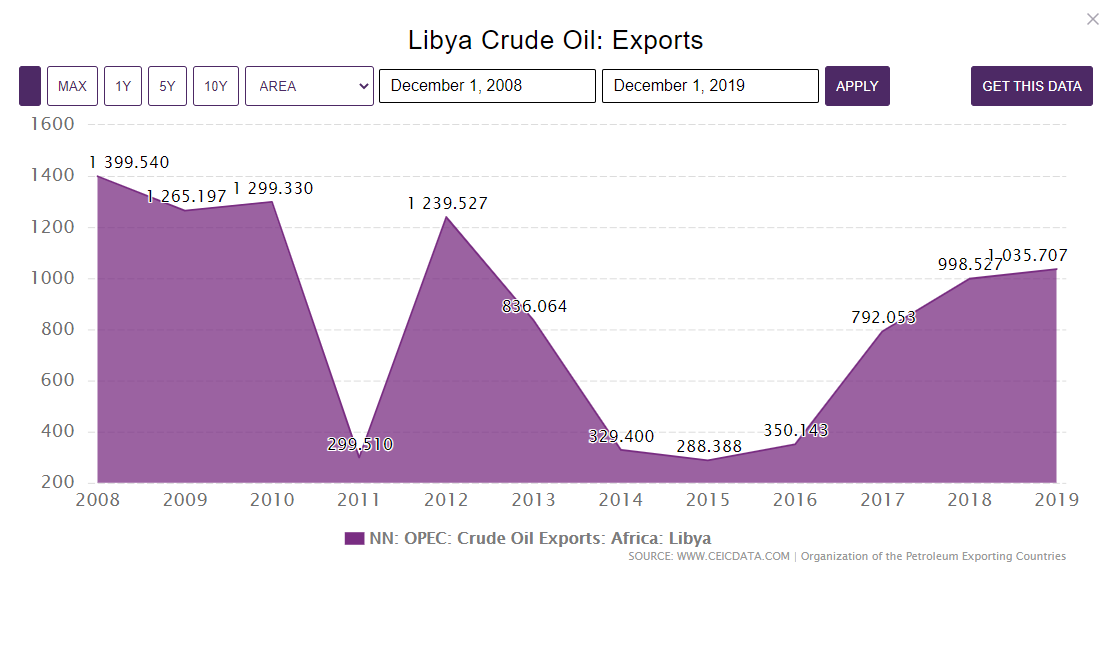
Since January, OPEC member nation Libya has not exported a single barrel of oil. The country’s national oil company declared force majeure at that time, a contractual term that essentially declares that a company cannot meet delivery terms for reasons beyond its control. If ever the term applied, it did in Libya.
Last week, the country’s deputy prime minister met with the son of the commander of the renegade Libyan National Army (LNA), which had shut down Libya’s oil exports, and reached an agreement to create a committee to resolve conflicts between the government and the LNA. The shutdown reportedly has cost Libya $9.8 billion in oil revenue, the country’s main source of income.
The announcement of the agreement has sent crude prices plunging. The world’s crude oil inventories continue to be overflowing, and the addition of another 330,000 barrels a day won’t help the situation. Crude prices improved by around 10% last week after Saudi Arabia swore to defend the market with more output cuts. No one, except perhaps the Saudis, believes that any longer.
The government-LNA deal isn’t done yet because it hasn’t been signed. Libya’s Prime Minister Fayez al-Sarraj has neither accepted the deal nor allowed his deputy to travel to an LNA-controlled city to sign the agreement.
Libya is currently producing about 90,000 barrels a day and Bloomberg reported that production could reach 330,000 barrels a day in a few days. Total production could reach 550,000 barrels a day by the end of the year and nearly a million barrels a day by mid-2021.
At its peak in 2008, Libya produced nearly 1.8 million barrels of oil a day. Since 2014, the company has stopped reporting official numbers, although unofficial sources put 2018 production at 951,000 barrels a day and 2019 production at around 1.1 million barrels. Production in August was said to be 106,000 barrels a day, according to OPEC’s latest Oil Market Report.
Libya sits on the largest reserves on the African continent, 46.4 billion barrels, according to the U.S. Energy Information Administration. The country ranks ninth in the world, just ahead of the United States, with 47.1 billion barrels of reserves.
The following chart from CEICData and OPEC show Libya’s crude exports between 2008 and December of 2019.
In 2011, four U.S. oil companies had operations in Libya: ConocoPhillips (NYSE: COP), Marathon Oil Corp. (NYSE: MRO), Hess Corp. (NYSE: HES), and Occidental Petroleum Corp. (NYSE: OXY). Other international oil firms that once had stakes in Libyan oil included BP and Italy’s Eni SpA. Libya’s National Oil Corp. granted concessions to these companies in exchange for a share in the revenues.
ConocoPhillips owns a 16.3% stake (about 2% of the company’s total annual production) in the country’s Waha Oil concessions, while Marathon had a 16% stake (about 19% of annual production) in Waha’s Sirte basin operations. Hess owned stakes that accounted for about 8% of its total 2011 annual production, and Occidental generated about 2% of its annual revenue from its Libyan production.
Marathon sold its Libyan assets to Total in 2018 for $450 million. Occidental pulled out in 2015. ConocoPhillips and Hess have maintained their stakes in the Waha concessions.
West Texas Intermediate (WTI) crude traded down nearly 5% Monday morning at around $39.20 and Brent crude traded down nearly 4% at around $41.50.
It’s Your Money, Your Future—Own It (sponsor)
Retirement can be daunting, but it doesn’t need to be.
Imagine having an expert in your corner to help you with your financial goals. Someone to help you determine if you’re ahead, behind, or right on track. With SmartAsset, that’s not just a dream—it’s reality. This free tool connects you with pre-screened financial advisors who work in your best interests. It’s quick, it’s easy, so take the leap today and start planning smarter!
Don’t waste another minute; get started right here and help your retirement dreams become a retirement reality.
Thank you for reading! Have some feedback for us?
Contact the 24/7 Wall St. editorial team.

 24/7 Wall St.
24/7 Wall St.



